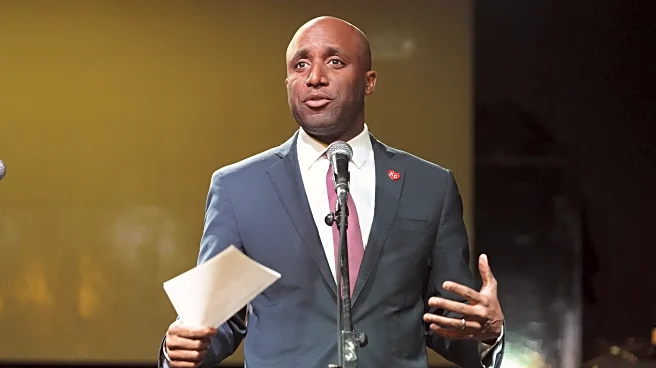What is the story about?
What's Happening?
Recent discussions have emerged around the safety and effectiveness of hormone therapy for women over 40, challenging previous fears stemming from the Women’s Health Initiative study in the early 2000s. Dr. Priya Jaisingahani from NYU Langone Health emphasizes the importance of understanding hormonal changes during perimenopause and menopause, which can affect mood, memory, sleep, and overall health. The conversation, part of a podcast episode featuring Hollywood action star Frank Grillo and author Mel Robbins, explores the role of testosterone and estrogen in the body, and the need for menopause care to be considered as longevity care. The episode also highlights the importance of involving men in discussions about menopause, as it impacts all women.
Why It's Important?
The shift in understanding hormone therapy is significant as it offers women safer options to manage symptoms associated with menopause and perimenopause. This development could lead to improved quality of life for women, reducing the risk of diseases and enhancing longevity. The conversation also aims to destigmatize menopause, encouraging open discussions and better support systems. By involving men in these discussions, it fosters a more inclusive approach to women's health, potentially leading to more comprehensive healthcare policies and practices.
What's Next?
As awareness grows, healthcare providers may see an increase in women seeking hormone therapy and other treatments for menopause symptoms. This could lead to more research and development in the field, offering new tools and options for women. Additionally, public health campaigns might focus on educating both men and women about menopause, promoting a more informed and supportive environment.
Beyond the Headlines
The conversation around menopause care as longevity care suggests a broader shift in how society views aging and women's health. This could lead to changes in healthcare policy, prioritizing preventive care and long-term health strategies for women. The involvement of men in these discussions also highlights a cultural shift towards more gender-inclusive health conversations.
















